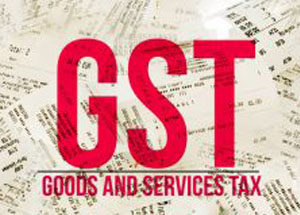People are urged to enrol in accountancy programmes as a result of the increase in trade and commerce caused by the population’s exponential expansion, government laws, currency exchange, growing globalisation, and the extent of malpractices. Industry-specific course development and supplementary teaching resources are required.
Teachers and lecturers keep up to date with the most recent advancements in business and accounting practises. They are also working together with government agencies and professionals in the business to develop the necessary tools, methodologies, and software. Students may also benefit from improved educational opportunities. Online accounting has become the new norm as a result of deregulation and globalisation, as well as improvements in ICT. There are many institutes, like UNICUS Academy that provide CA online classes in Kerala.
India’s Accounts Education
The transition from the traditional Munimgiri to a structured and efficient record-keeping system for financial transactions has increased the need for qualified and professional accountants in order to manage accounting levels without making mistakes. There are numerous academic institutions and professional organisations set up to instruct persons who are interested in accounting. In schools all over India, it is taught at a basic level as a whole new area in classes 11 and 12.
The “Make in India” campaign, “Startup India,” and the influx of foreign investments in Indian enterprises are a boom for young talents with an interest in finance, accounting, and economics. On the educational front, the curriculum will incorporate more real-world applications. There are many academies that provide CA Courses in Kochi and CMA Courses in Kochi.
India’s Need For Accountants: The Facts
Demand for accountants in India is expected to increase in the near future as a result of Japan and other countries encouraging and providing incentives for their businesses to relocate their manufacturing bases to India. In addition, the importance of transaction records has become more understood by the general public.
Therefore, even professionals in the fields of engineering, medicine, law, and business are preparing to become familiar with accounting tools and processes. If they are unable to enrol themselves in a course, they can choose their own online hours and, after successfully completing the course, add the certificate completion to their profile by taking online courses. Education in accounting is crucial and cannot be overlooked.
Need To Develop Financial Intelligence
The efficiency with which everyday transactions are managed and accurately recorded determines whether a business is a small shop, a showroom, a factory, or a service provider.
Simply recording the transactions would not be sufficient; they must also adhere to the norms established by the accounting confederations. This ultimately enables a person to evaluate the viability of his company operation. In order to engage in a healthy competition with their rivals, the stakeholders are better equipped to analyse the prospects and foresee the future trends.
Various types of business ownership
The Public Limited Company, Private Limited Company, Joint Venture, Sole Proprietorship, One Person Company, Partnership, NGO, Cooperations, Limited Liability Company, and other types of business alliances are now recognised in India under the 2013 Companies Act. Thus, depending on the designations and kind of incorporations, the financial duty also varies. Additionally, there are a variety of sizes and numbers of clients, service providers, and staff. The company must therefore employ qualified accountants.
Political Affectations
The enormous weights of NPA-tagged loans have been causing the Indian banking system to collapse. Economic criminals, loan defaulters, con artists, and fraudsters have the power to undermine a country’s economy and reputation and plunge it into the devil’s grasp of recession.
India is a democratic country where different political parties are chosen by the Indian people through voting. Each of these has various goals and priorities on their to-do list, which affect the range of our country’s economic activity. Numerous programmes are launched or are withdrawn depending on their suitability in order to keep an eye on any unwelcome deviations in the economic and financial statistics.
Through knowledgeable and nimble accountants, the government collaborates with the Reserve Bank of India (RBI), Securities and Exchange Board of India (SEBI), and other organisations. They guarantee the system’s conformity, clarity, and auditory transparency.
Application And Examination Of Financial Plans
To promote commercial operations in the country, the government periodically announces subsidies, moratoria, and tax benefit plans. Taxes are also collected, and the amount of them is frequently changed to fund national defence and development projects. Government revenue is primarily derived from taxes like the Goods and Services Tax, Income Tax, Custom and Excise Duties, etc.
The annual budget is created with the aid of those working in the financial and business sectors. At every level, there must be rigorous brainstorming, audits, verifications, and adherence to the law. Any point of leakage has the potential to transform the system into a major financial and economic catastrophe.
Professional Training Programs In India For Accountant Jobs
Accounting experts must specialise in one or more other accounting fields due to the complexity and diversity of business today. In India, there are numerous accounting jobs available. The requirement of the hour is skilled labour.
During the lockdowns, online learning experienced a great uptick, and even accountants who are now working have begun to explore their areas of interest in accounting to become more specialised. The specialist branches of accounting are listed below:
- Cost Accounting
- Company Secretary
- Chartered Accountant
- Actuary
- Financial Analysts.
Taking Online Accounting Courses in India
There is a demand for skilled accountants due to the promotion of the “Make In India” programme. However, due to inadequate teaching, a lack of tutor support, and a lack of exposure to real-world problems, there is still a lack of talent.
Because of the initial low salaries or stipends granted to graduates and the need for further specialisation, regular graduate and postgraduate courses in commerce, accounting, finance, and economics, diploma accounting, advanced diploma accounting, etc. find less appeal. In a class of 70 to 80 people, there is also a lack of focus on sincere students who sincerely want to grasp and practise the subjects.
In accounting and finance, there is a rising need for analytical abilities.
The emphasis is increasingly turning to online learning, including MOOCs and certification programmes, where there are several real-world examples to study about for each module. A participant or student is more skilled and unafraid in his application of information when exposed to industry-specific content.
No matter how well or poorly the economy is doing, accountants are always needed to analyse, audit, and recommend solutions to improve the corporate environment in accordance with local, national, and international standards.



